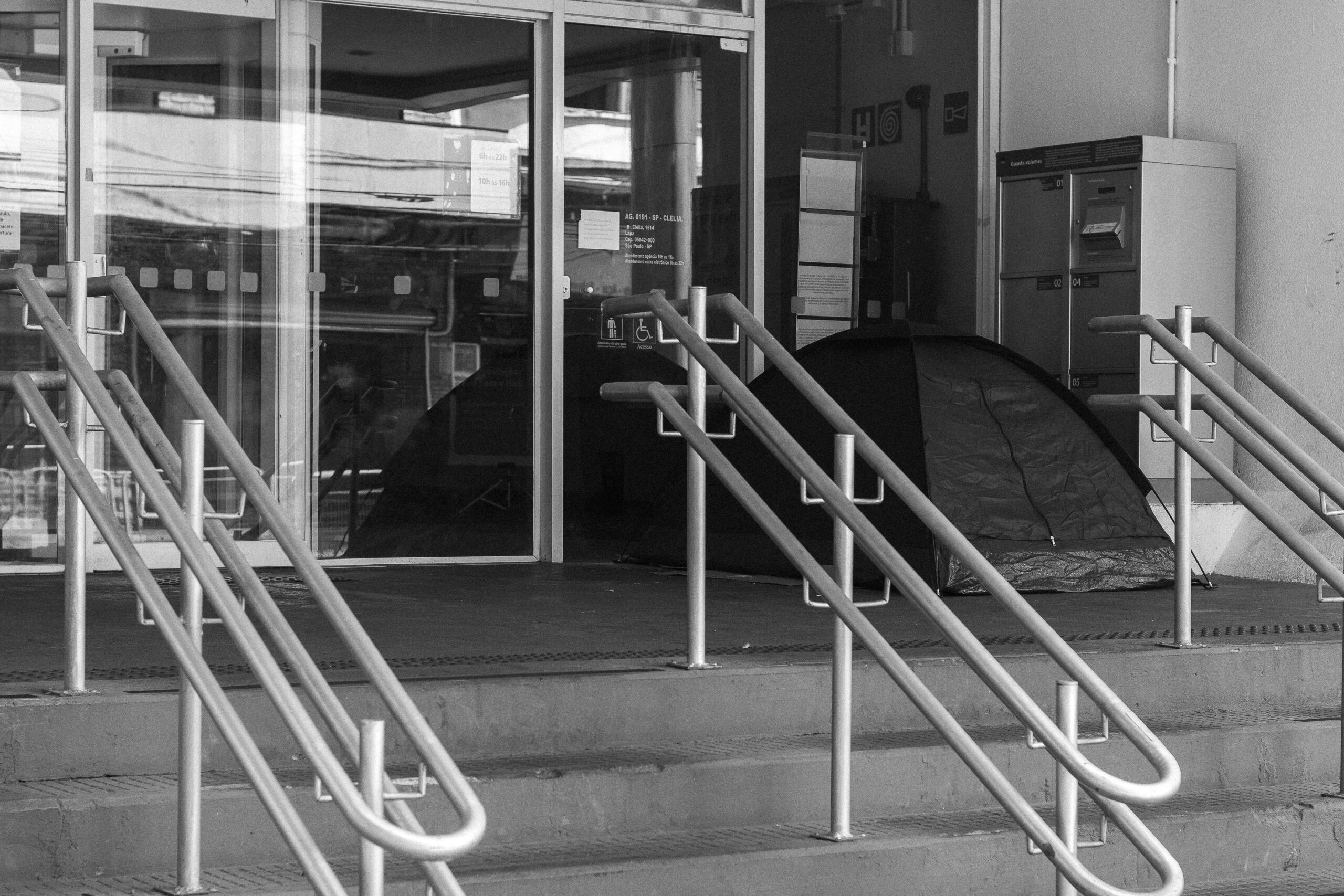Table of Contents
Understanding Heartbreaks

Heartbreak, a term that feels as heavy as it sounds, encompasses a wide range of emotional experiences. It’s not just limited to the end of a romantic relationship; heartbreak can stem from various sources and affect us in myriad ways.
Definition and Different Types of Heartbreak
At its core, heartbreak is an intense emotional suffering or distress caused by the loss of someone or something that holds significant emotional value. Here are some common types of heartbreak:
- Romantic Heartbreak: The end of a romantic relationship, whether through breakup, divorce, or unrequited love.
- Friendship Heartbreak: The dissolution of a close friendship, often due to betrayal, drifting apart, or life changes.
- Family Heartbreak: Strain or conflict within family relationships, such as estrangement or loss of a family member.
- Unfulfilled Dreams: The pain of not achieving personal or professional goals, leading to feelings of disappointment and loss.
Common Causes and Scenarios Leading to Heartbreak
Heartbreaks can occur in various scenarios, each unique yet painfully relatable. Some common causes include:
- Breakups and Divorces: When a romantic relationship ends, it can feel like a part of you is missing.
- Betrayal: Discovering infidelity or deceit from a loved one shatters trust and brings immense pain.
- Unrequited Love: Loving someone who does not return your feelings can be profoundly heartbreaking.
- Loss of Loved Ones: Death or separation from a loved one leaves a void that is hard to fill.
- Disappointments and Failures: Not achieving what you’ve worked hard for can lead to a sense of heartbreak and hopelessness.
Emotional and Physical Symptoms of Heartbreaks
Heartbreaks doesn’t just affect our emotions; it can manifest physically as well. Here are some common symptoms:
- Emotional Symptoms: Sadness, anxiety, anger, confusion, and a sense of emptiness.
- Physical Symptoms: Fatigue, insomnia, changes in appetite, chest pain, headaches, and a weakened immune system.
- Behavioral Changes: Withdrawal from social activities, difficulty concentrating, and changes in routine.
Heartbreaks are multifaceted experiences, and understanding its nuances is the first step towards healing. By recognizing the different types, causes, and symptoms, we can better prepare ourselves to cope and recover.
The Science Behind Heartbreaks
Heartbreaks are more than just emotional experiences; they have a profound impact on our brain and body. Understanding the science behind heartbreaks can help demystify why it feels so intense and provide insights into the healing process.
How Heartbreaks Affect the Brain and Body
When we experience heartbreaks, our brains undergo significant changes, similar to physical pain. Here’s a look at what happens:
- Brain Activity:
- Pain Response: Studies have shown that the same areas of the brain activated during physical pain are also activated during emotional pain. This is why heartbreaks can feel like a physical ache.
- Withdrawal Symptoms: The brain regions associated with addiction and craving light up during heartbreaks, explaining why we might feel an intense longing or withdrawal from the person or thing we’ve lost.
- Neurochemical Changes:
- Cortisol: The stress hormone cortisol is released in higher amounts during heartbreaks, leading to symptoms such as anxiety, insomnia, and a weakened immune system.
- Dopamine and Serotonin: Levels of these neurotransmitters, which regulate mood and happiness, can fluctuate wildly, causing emotional instability.
- Physical Symptoms:
- Chest Pain: Often referred to as “broken heart syndrome” or stress-induced cardiomyopathy, extreme stress and sadness can lead to real heart problems.
- Fatigue and Sleep Disturbances: Increased stress and anxiety can disrupt sleep patterns and lead to chronic fatigue.
Psychological Stages of Heartbreak
Just as there are stages of grief, heartbreak often follows a series of emotional stages:
- Shock and Denial: Initial disbelief and numbness, struggling to accept the reality of the loss.
- Pain and Guilt: Overwhelming sadness, regret, and self-blame.
- Anger and Bargaining: Frustration and attempts to negotiate or reverse the situation.
- Depression and Reflection: Deep sadness, reflection on the relationship or loss, and withdrawal from usual activities.
- The Upward Turn: Gradual easing of pain and beginning to adjust to life without the loved one.
- Reconstruction and Working Through: Rebuilding life, developing new routines, and rediscovering joy.
- Acceptance and Hope: Embracing the new reality and looking forward to the future.
Scientific Studies on Emotional Pain and Recovery
Researchers have extensively studied heartbreak and its effects. Here are some notable findings:
- Physical Pain Link: A study published in the journal Proceedings of the National Academy of Sciences found that emotional pain activates the same brain regions as physical pain, explaining why heartbreak can feel physically painful.
- Healing with Time: Research suggests that while the intensity of heartbreak diminishes over time, the process of healing varies greatly among individuals. Factors such as social support, personal resilience, and coping mechanisms play a crucial role.
- Importance of Social Support: Studies indicate that people with strong social networks recover faster from heartbreak. Friends, family, and support groups provide essential emotional support during this time.
Understanding the scientific underpinnings of heartbreak can help validate the intense emotions we experience and offer a roadmap to recovery.
Coping Mechanisms
Navigating through the storm of heartbreak is challenging, but with the right coping mechanisms, you can steer towards calmer waters. Here are some practical steps and strategies to help you process your emotions and begin the healing journey.
Immediate Steps to Take After a Heartbreak
- Allow Yourself to Grieve: It’s essential to acknowledge your pain and allow yourself to feel the full range of emotions. Suppressing feelings can prolong the healing process.
- Reach Out for Support: Don’t isolate yourself. Talk to friends, family, or a support group about what you’re going through. Sharing your feelings can provide relief and perspective.
- Avoid Rash Decisions: In the heat of emotional turmoil, avoid making major life decisions. Give yourself time to process before taking any significant steps.
Healthy Ways to Process Emotions
- Journal Your Thoughts: Writing down your feelings can be a therapeutic way to process what you’re going through. It helps in organizing your thoughts and gaining insights into your emotions.
- Engage in Creative Activities: Art, music, or any form of creative expression can be a great outlet for your emotions. It allows you to channel your pain into something constructive.
- Practice Mindfulness and Meditation: Mindfulness techniques can help you stay present and reduce anxiety. Meditation can provide a sense of calm and help in managing stress.
The Importance of Self-Care and Self-Love
- Prioritize Your Physical Health: Exercise regularly, eat a balanced diet, and ensure you get enough sleep. Physical health is closely linked to emotional well-being.
- Pamper Yourself: Engage in activities that make you feel good, whether it’s a spa day, a favorite hobby, or simply taking a relaxing bath.
- Set Boundaries: Limit contact with your ex-partner or the source of heartbreak, if possible. It’s essential to create a space where you can heal without constant reminders of the pain.
Tips for Maintaining Physical Health During Emotional Distress
- Stay Active: Physical activity releases endorphins, which can help improve your mood. Even a simple walk can make a difference.
- Eat Nutritious Foods: Focus on a diet rich in fruits, vegetables, lean proteins, and whole grains. Avoid excessive alcohol or junk food, which can exacerbate negative emotions.
- Sleep Well: Create a calming bedtime routine and aim for 7-9 hours of sleep per night. Good sleep hygiene is crucial for emotional recovery.
Coping with heartbreak is a process that requires patience and self-compassion. By incorporating these healthy practices into your routine, you can begin to heal and move forward.
Rebuilding and Moving On
After the initial shock and emotional upheaval of heartbreak, the next step is to rebuild and move forward. This phase is about regaining your confidence, rediscovering your passions, and opening up to new possibilities.

Strategies for Moving Forward and Rebuilding Confidence
- Set Small, Achievable Goals: Start by setting small, attainable goals. Completing these tasks will provide a sense of accomplishment and help rebuild your confidence.
- Reflect and Learn: Take time to reflect on what you’ve learned from the experience. Understanding the lessons can prevent future heartbreak and help you grow emotionally.
- Positive Affirmations: Practice positive self-talk and affirmations to boost your self-esteem. Remind yourself of your strengths and worth regularly.
The Role of Hobbies and Interests in Recovery
- Rediscover Old Hobbies: Re-engage with activities you used to enjoy before the heartbreak. Hobbies can be a great way to distract your mind and find joy again.
- Try New Activities: Exploring new interests can be both exciting and therapeutic. Whether it’s painting, hiking, or learning a new language, new experiences can bring fresh perspectives.
- Join Clubs or Groups: Becoming part of a community or club related to your interests can provide social support and new friendships, helping you feel less alone.
How to Open Up to New Relationships and Trust Again
- Take Your Time: There’s no rush to jump into a new relationship. Allow yourself the time to heal and ensure you’re emotionally ready before getting involved with someone new.
- Set Boundaries: Be clear about your boundaries and communicate them openly in any new relationship. Healthy boundaries are essential for building trust and respect.
- Practice Vulnerability: Being open and honest about your feelings and past experiences can strengthen new relationships. It’s okay to be vulnerable and share your journey with someone who respects and understands you.
Inspirational Stories of People Who Have Overcome Heartbreak


- Celebrity Examples: Many celebrities have publicly shared their experiences with heartbreak and how they bounced back. For instance, singer Adele has spoken openly about how her music helped her process and heal from her heartbreaks.
- Personal Stories: Sharing real-life stories of individuals who have faced and overcome heartbreak can be incredibly inspiring. These stories highlight the resilience of the human spirit and the possibility of finding happiness again.
Rebuilding after heartbreak is about creating a new foundation for yourself. It’s a journey of self-discovery, growth, and finding joy in both old and new experiences.
Seeking Professional Help
While self-care and personal efforts are crucial in overcoming heartbreak, sometimes professional help is necessary to navigate through intense emotional pain and ensure a healthy recovery.


When and Why to Seek Therapy or Counseling
- Persistent Sadness: If feelings of sadness, depression, or hopelessness persist for an extended period, it may be time to seek professional help.
- Difficulty Functioning: When heartbreak affects your ability to carry out daily activities, work, or maintain relationships, therapy can provide the support needed to regain normalcy.
- Unhealthy Coping Mechanisms: If you find yourself resorting to harmful behaviors, such as substance abuse or self-harm, a therapist can help you develop healthier coping strategies.
- Traumatic Experiences: If the heartbreak stems from trauma, such as abuse or significant loss, professional guidance is essential for processing and healing.
Types of Therapy Beneficial for Heartbreak
- Cognitive Behavioral Therapy (CBT): CBT helps individuals identify and change negative thought patterns and behaviors, fostering healthier ways of thinking and coping.
- Narrative Therapy: This approach allows individuals to reframe their experiences and develop a more empowering narrative about their lives and heartbreak.
- Emotionally Focused Therapy (EFT): EFT focuses on understanding and transforming emotional responses, particularly in relationships. It’s beneficial for healing from romantic heartbreak.
- Mindfulness-Based Stress Reduction (MBSR): MBSR combines mindfulness meditation and yoga to help individuals manage stress and emotional pain.
- Group Therapy: Sharing experiences with others who have gone through similar heartbreak can provide support, validation, and a sense of community.
How to Find a Good Therapist or Support Group
- Referrals and Recommendations: Ask friends, family, or healthcare providers for recommendations. Personal referrals can often lead to finding a trustworthy and effective therapist.
- Online Directories: Websites like Psychology Today, BetterHelp, and TherapyTribe provide directories of licensed therapists, along with their specialties and contact information.
- Professional Associations: Organizations such as the American Psychological Association (APA) or National Association of Social Workers (NASW) have resources to help you find qualified professionals.
- Local Community Centers: Community health centers often offer counseling services or can refer you to local therapists and support groups.
- Initial Consultations: Many therapists offer initial consultations to determine if they are a good fit for your needs. Don’t hesitate to meet with a few therapists before making a decision.
Seeking professional help is a sign of strength, not weakness. It shows a commitment to your well-being and a proactive approach to healing and personal growth.
Preventing Future Heartbreak
While heartbreak is often unavoidable, there are steps you can take to minimize the risk and build healthier, more resilient relationships. By learning from past experiences and developing strong emotional skills, you can protect your heart and create lasting bonds.
Lessons Learned from Past Relationships
- Self-Awareness: Reflect on past relationships to understand your patterns and behaviors. Recognize what worked and what didn’t, and identify areas for personal growth.
- Red Flags: Be mindful of early warning signs in a relationship. Trust your instincts and don’t ignore red flags, such as dishonesty, lack of respect, or emotional unavailability.
- Communication Skills: Practice effective communication. Be open, honest, and assertive about your needs and feelings. Good communication can prevent misunderstandings and conflicts.
Developing Emotional Resilience
- Emotional Intelligence: Cultivate emotional intelligence by becoming more aware of your emotions and learning how to manage them effectively. This includes recognizing and addressing your feelings before they escalate.
- Healthy Boundaries: Establish and maintain healthy boundaries in all relationships. Boundaries protect your well-being and ensure mutual respect and understanding.
- Self-Care Practices: Prioritize self-care and self-love. Taking care of your physical, emotional, and mental health makes you more resilient to emotional challenges.
Building Healthy Relationship Habits
- Mutual Respect and Trust: A healthy relationship is built on mutual respect and trust. Ensure both partners value and respect each other’s opinions, feelings, and boundaries.
- Shared Values and Goals: Align your relationship with shared values and long-term goals. Compatibility in these areas strengthens the foundation of your relationship.
- Quality Time Together: Spend quality time together to strengthen your bond. Engage in activities you both enjoy and make time for meaningful conversations.
- Conflict Resolution: Learn healthy conflict resolution skills. Address issues calmly and respectfully, and work together to find solutions.
Recognizing Red Flags Early On
- Lack of Communication: Poor communication can lead to misunderstandings and unresolved issues. Pay attention to how your partner communicates and addresses problems.
- Controlling Behavior: Controlling or manipulative behavior is a major red flag. A healthy relationship involves equality and mutual respect.
- Emotional Unavailability: If your partner consistently avoids emotional intimacy or dismisses your feelings, it may indicate emotional unavailability.
- Inconsistent Actions: Actions speak louder than words. If your partner’s actions don’t align with their words, it may be a sign of dishonesty or unreliability.
Preventing future heartbreak involves a combination of self-awareness, emotional resilience, and healthy relationship practices. By learning from the past and cultivating these skills, you can build stronger, more fulfilling relationships.
Conclusion
Heartbreak, while universally painful, offers a profound opportunity for growth and self-discovery. Through understanding its causes and effects, embracing healthy coping mechanisms, seeking professional help when necessary, and learning how to prevent future heartbreak, we can transform this challenging experience into a stepping stone toward a stronger, more resilient self.
Remember, the journey through heartbreak is personal and unique. It’s important to be patient with yourself and recognize that healing takes time. Embrace the process, cherish the lessons learned, and allow yourself to open up to new possibilities and relationships.
Thank you for joining me on this journey. If you have any personal stories, questions, or additional tips to share, please feel free to leave a comment. Remember, you’re not alone in this, and support is always within reach.
Here’s to healing, growing, and embracing the future with an open heart.









